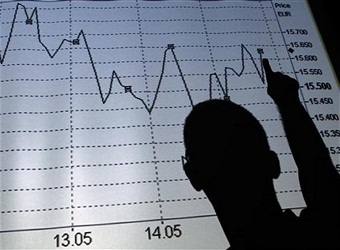Egypt is moving forward in 2018 with structural reforms that helped make the nation’s assets among the best performers in the Middle East according Bloomberg report
Foreign holdings of treasury bills was about $19 billion as of the end of November as authorities removed most currency restrictions and cut subsidies. The main stock gauge, the EGX 30 Index, advanced more than 20 percent this year, double its nearest Middle Eastern contender.
The central bank is seen cutting its key interest rate in 2018, according to Khaled Darwish, an equity portfolio manager at CI Capital Asset Management in Cairo, and that will likely prompt more investors to opt for stocks over bonds. Healthcare, infrastructure and consumer shares have the most attractive valuations, he said. 
Meanwhile, the report said that Saudi Arabia is seeking to sell as much as 5 percent of Saudi Arabian Oil Co., better known as Aramco, in what could be the biggest initial public offering ever. And there’s anticipation that the country will be added to FTSE Russell’s emerging-markets index in March. Some strategists, such as Mohamad Al Hajj at EFG-Hermes, sees inclusion in MSCI Inc. index in June.
Traders will also be monitoring the kingdom’s role in politics.
And similar to 2017, investors will need to keep up with the pace of change domestically, including the fallout from value added tax. This year, an anti-corruption committee stunned analysts with an unprecedented public purge, the government announced a new city called Neom that will be built on the Red Sea coast and the kingdom allowed short-selling of Saudi stocks.
The report also said that after two IPOs in Dubai and Abu Dhabi raised a combined $2.16 billion in the last quarter of 2017, Emirates Global Aluminium PJSC is weighing a dual listing in both markets. The company is jointly owned by Abu Dhabi’s Mubadala Investment Co. and the Investment Corp. of Dubai. Mubadala’s Chief Executive Officer Khaldoon Al Mubarak said in October that he expects the offering to take place in 2018.
Abu Dhabi is also working with banks to sell notes denominated in local currency for the first time in 2018, according to people with knowledge of the matter. For investors seeking protection against a rise in oil prices and the dollar, the emirate’s assets offer the “the best defense,” Hasnain Malik, the Dubai-based head of equities research at Exotix Partners LLP, said in an emailed note.
Investors will also be keeping an eye on the impact of VAT, which comes into effect from Jan. 1.
Also, the report said that Kuwait could make it to MSCI’s watch list for inclusion into its emerging-market index after winning a place in FTSE Russel’s gauge, according to Simon Kitchen, the head of strategy at Cairo-based investment bank EFG-Hermes.
“Kuwait has made a lot of reforms that index providers require over the past year,” Kitchen said in an interview with Bloomberg Television on Dec. 20. “You have an economy that has always been robust and the most exciting in the region and you have a lot of money coming in to a market that is beginning to do the right things. And, more importantly, foreign and even regional investors have never really looked” at Kuwaiti assets seriously before, he said.
Amid the reforms underway, the exchange may start a new equities index after completing a reorganization of listed companies into different categories. The regulator has also issued a tender for advisory services for sale of a stake in the stock exchange.
On the other hand, Bahrain, the GCC’s smallest economy and a close Saudi ally may struggle to meet the growing demand for foreign currency or deal with the effects of worsening investor sentiment. “Financial support from neighboring sovereigns would be forthcoming,” S&P Global Ratings said in December when it cut the nation’s rating to B+, four levels below investment grade.
Source: Bloomberg


